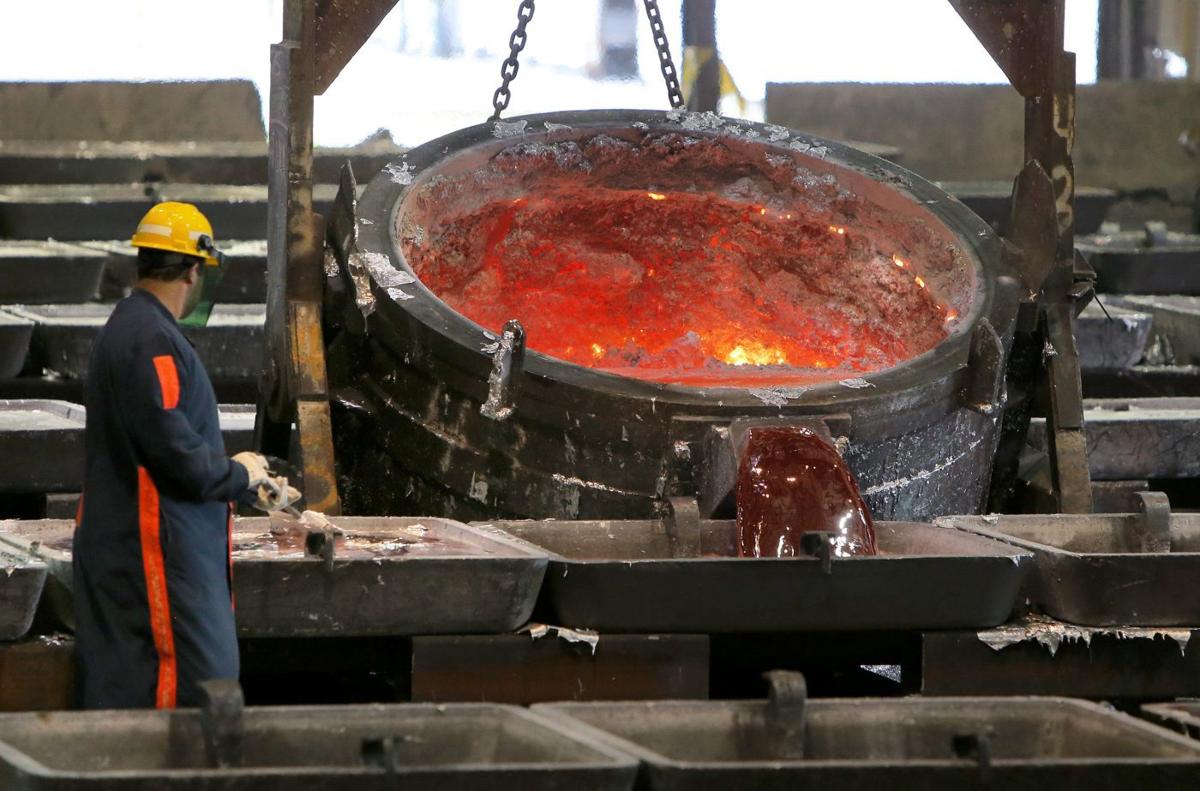President Donald Trump’s mantra that “” has always betrayed a simplistic, two-dimensional rationale regarding global trade. Tariffs imposed on trading partners not only invite retaliatory tariffs but can hurt American suppliers who sell to overseas manufacturers — not to mention the American consumers who pay for it all. Global trade is so interconnected, with supply chains often crossing multiple borders, that disruption of any one link reverberates in unpredictable ways.
Case in point: A shuttered southeastern Missouri aluminum-smelting operation that reopened in 2018 to great fanfare with the help of Trump’s trade tariffs is already on the brink of shutting down again. It’s in part the victim of the same trade war that put the smelter back in business.
People are also reading…
Two years ago, then-Missouri Gov. Eric Greitens and other Republican leaders gathered at the former Noranda Aluminum plant in the Bootheel region to tout its reopening under a new owner. Much of the credit was given to Trump’s trade policies, which included tariffs on foreign aluminum, thus making it easier for U.S. aluminum smelters to compete in the domestic market.
But the new owner, Magnitude 7 Metals LLC, now says it is losing money so fast that it may close within 60 days. The plant’s top executive told Reuters that “the rest of the world has gamed the tariffs,” undercutting the smelter’s products in the market.
It’s actually more complicated than that, as things so often are on issues of trade.
Trump’s tariffs were imposed on incoming raw aluminum — the material that the Missouri smelter produces — but not, originally, on the manufactured products derived from aluminum. So while a foreign smelter faced higher tariffs on its raw aluminum, that didn’t apply to a foreign manufacturer of, say, aluminum nails.
That gives foreign smelters incentive to get around the tariffs by selling their product to manufacturers outside America, who would then ship the finished products here. Sure enough, while the tariffs have reduced the amount of imported raw aluminum coming into the U.S., they have increased the amount of aluminum finished products. That hurts the U.S. manufacturers that the American smelter is trying to sell to, even as it makes the smelter’s overseas markets more crowded with competitors.
In response, the administration the extension of tariffs to those manufactured aluminum goods as well, essentially playing a game of whack-a-mole to address the unintended consequences of its own policies. That will raise retail prices for those products here — which in turn could also negatively impact the Missouri smelter’s sales.
Before the Trump era, Republicans preached the gospel of free trade, grounded in the belief that government meddling in the global market would inevitably do more harm than good. How ironic that a Republican president is now proving it.













